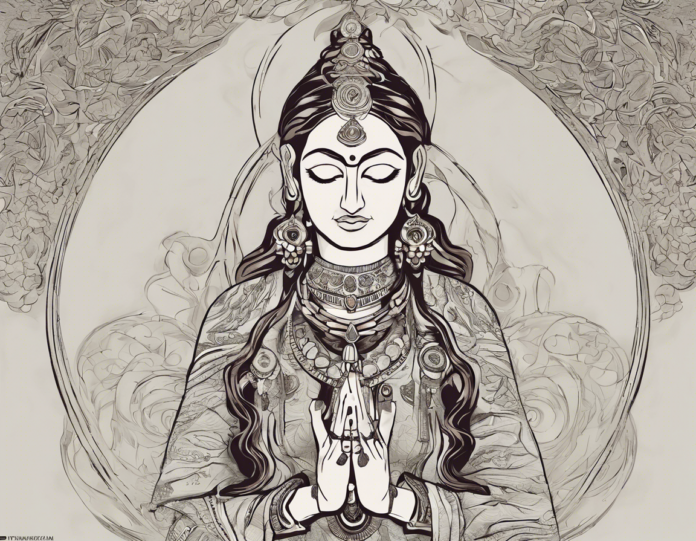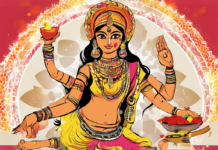Introduction
The world of literature is filled with renowned epic poems that have left lasting impressions on readers through the ages. One such masterpiece is “Rashmirathi,” a timeless Indian epic poem written by the distinguished poet Ramdhari Singh ‘Dinkar.’ Originally written in Hindi, “Rashmirathi” is a literary marvel that delves into the captivating narrative of the epic Mahabharata, focusing primarily on the character of Karna, one of its central figures. This profound work of art not only showcases the poetic brilliance of Dinkar but also offers readers a deep insight into the moral dilemmas, complexities of human nature, and the eternal struggle between righteousness and duty. In this comprehensive guide, we will explore the essence of “Rashmirathi,” its significance, themes, characters, and its enduring legacy in the realm of Indian literature.
The Legacy of “Rashmirathi”
“Rashmirathi” holds a revered place in the corpus of Indian literature, celebrated for its profound philosophical insights, lyrical appeal, and poignant storytelling. The poem derives its name from Karna, who is hailed as the ‘Rashmirathi,’ meaning the one who rides the chariot drawn by rays (rathi) of sunlight (rashmi). Through the life and struggles of Karna, Dinkar weaves a rich tapestry of emotions, dilemmas, and sacrifices, inviting readers to contemplate the meaning of life, duty, honor, and the eternal conflict between destiny and free will.
Themes and Motifs in “Rashmirathi”
At its core, “Rashmirathi” is a profound exploration of various themes and motifs that resonate with readers across generations. Some of the prominent themes include:
1. Karma and Destiny: Central to the narrative of “Rashmirathi” is the theme of karma, emphasizing the idea that one’s actions and choices determine their fate. Karna’s unwavering commitment to his principles, despite facing numerous hardships, exemplifies the concept of karma and its consequences.
2. Duty and Dilemma: The poem delves into the complexities of duty and the moral dilemmas faced by individuals when their responsibilities clash with their personal beliefs. Karna’s loyalty towards Duryodhana, despite knowing the unjust nature of his cause, raises profound questions about the nature of duty and righteousness.
3. Honor and Sacrifice: Through Karna’s character, Dinkar portrays the significance of honor and sacrifice in upholding one’s principles. Karna’s willingness to sacrifice his personal well-being for the sake of loyalty and honor underscores the timeless values of integrity and selflessness.
4. Friendship and Betrayal: The bond between Karna and Duryodhana symbolizes the theme of friendship and loyalty, highlighting the strength of relationships in the face of adversity. The betrayals and challenges they endure together shed light on the darker aspects of human relationships and trust.
Characters in “Rashmirathi”
Apart from Karna, “Rashmirathi” features a spectrum of compelling characters who play pivotal roles in shaping the narrative and reflecting the diverse facets of human nature. Some of the notable characters include:
1. Kunti: Karna’s biological mother, whose revelation of his birthright sets in motion a series of events that define Karna’s destiny and loyalties.
2. Duryodhana: Karna’s closest ally and friend, whose unwavering support and camaraderie with Karna form a central aspect of the poem’s storyline.
3. Arjuna: Karna’s arch-rival and half-brother, with whom he engages in epic battles that culminate in tragic confrontations and revelations.
4. Krishna: The divine charioteer and adviser, whose wisdom and guidance play a crucial role in shaping the events of the Mahabharata war.
The Artistry of Dinkar
As a poet, Ramdhari Singh ‘Dinkar’ showcases a remarkable command over language, imagery, and symbolism in “Rashmirathi”. His evocative verses, rich metaphors, and profound philosophical reflections elevate the poem to a timeless literary masterpiece. Dinkar’s use of rhythmic patterns, poetic devices, and vivid descriptions not only captivates the reader’s imagination but also leaves a lasting impact, inviting them to ponder over the deeper meanings embedded within the text.
The Impact of “Rashmirathi”
Over the years, “Rashmirathi” has garnered widespread acclaim for its literary merit, cultural significance, and enduring relevance in the landscape of Indian poetry. The poem continues to inspire readers, scholars, and artists, who find resonance in its themes, characters, and philosophical inquiries. Through its exploration of human emotions, ethical dilemmas, and existential quest, “Rashmirathi” stands as a poignant reminder of the enduring power of storytelling and the timeless relevance of epic narratives in shaping our understanding of life and the world around us.
FAQs (Frequently Asked Questions)
- What is the central theme of “Rashmirathi”?
-
The central theme of “Rashmirathi” revolves around karma, duty, honor, and the conflict between destiny and free will, as portrayed through the life of the character Karna.
-
Who is the author of “Rashmirathi”?
-
“Rashmirathi” is written by the renowned Hindi poet Ramdhari Singh ‘Dinkar,’ who is celebrated for his contribution to Indian literature.
-
What is the significance of Karna in the Mahabharata?
-
Karna is a central character in the Indian epic Mahabharata, known for his tragic fate, unwavering loyalty, and complex moral dilemmas that resonate with readers.
-
How does “Rashmirathi” reflect moral dilemmas and ethical conflicts?
-
The poem delves into the moral dilemmas faced by its characters, particularly Karna, as they navigate issues of duty, honor, friendship, and betrayal in the epic backdrop of the Mahabharata war.
-
What sets “Rashmirathi” apart from other epic poems in Indian literature?
- “Rashmirathi” stands out for its nuanced portrayal of characters, deep philosophical insights, and lyrical beauty, making it a timeless work that continues to captivate readers with its profound themes and narratives.
In conclusion, “Rashmirathi” reigns as a timeless epic poem that transcends the boundaries of time and culture, offering readers a glimpse into the intricacies of human nature, morality, and the eternal quest for truth and righteousness. Through its evocative storytelling, profound themes, and memorable characters, “Rashmirathi” continues to resonate with audiences, cementing its status as a literary gem that embodies the essence of Indian poetry at its finest.









